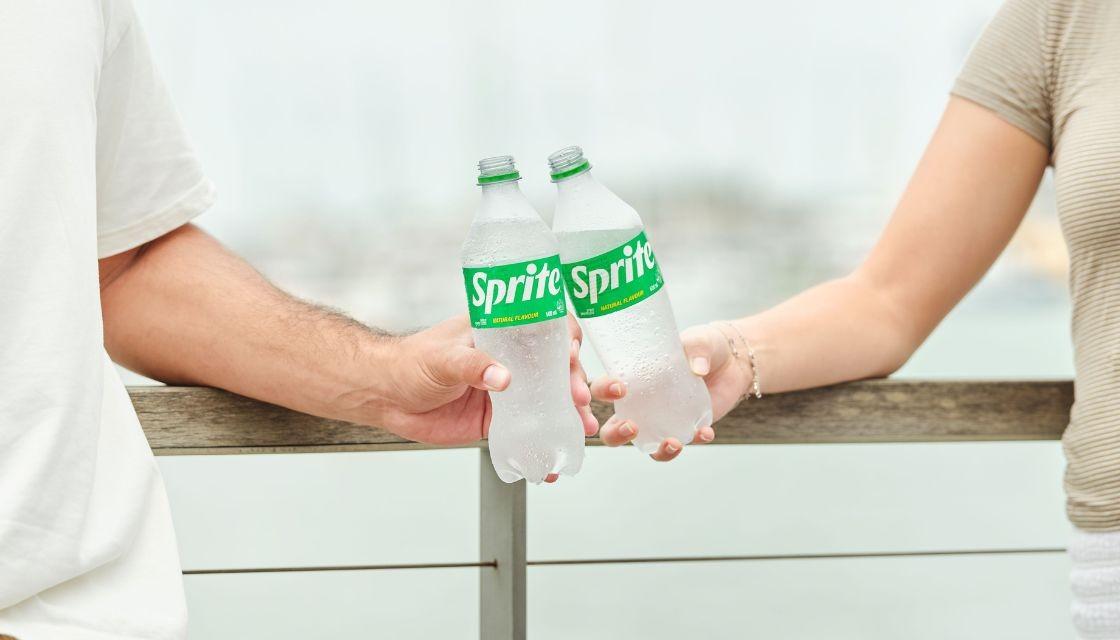
A move by Coca-Cola to switch Sprite's green plastic bottles to clear PET plastic has been branded "blatant greenwashing" by environmental activists, despite its claims that the swap will drive packaging circularity.
On Monday, the New Zealand arm of the beverage giant announced that Sprite's iconic green plastic of almost 60 years will become clear, making it easier to recycle the packaging into new bottles.
Julie O'Toole, the country lead for Coca-Cola Oceania, hailed the decision as an important move to drive packaging circularity.
"While all our cans, glass and plastic bottles are already accepted for recycling in New Zealand, this move to clear takes us a step further towards a circular economy for our packaging," she said in a statement.
"The shift from signature green to clear Sprite bottles will support local recycling systems as we increase these bottles' likelihood of being remade into new bottles. We know it is the right thing to do to make this change."

While green PET plastic (polyethylene terephthalate) is recyclable, it's usually converted into the likes of "single-use" clothing or carpet that cannot be recycled further, she added.
The move to the new clear bottle has either been completed or is currently in process in more than 100 countries. The transition is underway in New Zealand, but won't be completed until June.
However, the announcement has been slammed by environmental activists at Greenpeace Aotearoa, who branded the move to clear plastic "blatant greenwashing".
Greenwashing, also referred to as "green sheen", is a form of marketing spin in which 'green' buzzwords or broad claims are used in PR or advertising to persuade the public that a company's products and policies are environmentally friendly. Organisations might overstate their positive impacts on the environment in marketing materials, or make claims about sustainability or the 'eco-friendly' nature of the product without providing evidence.
For example, if a large energy company that invests in fossil fuels starts advertising a new sustainable or eco-conscious initiative, it will likely be accused of greenwashing as the initiative will do little to offset the scope of its environmental impact.
In a statement following the announcement on Monday, Greenpeace Aotearoa plastics campaigner Juressa Lee claimed that Coca-Cola's new sustainability efforts won't change its history as a major polluter.
"Global brand audits repeatedly identify Coca-Cola as the biggest plastic polluter in the world. This is yet another attempt to greenwash the destruction they're causing. Real action on the plastic pollution crisis, which is in turn fueling the climate crisis, is turning the tap off on plastic production and shifting to refill and reuse," Lee said.
"We know that only about 9 percent of all plastic ever produced has been recycled. We can't recycle our way out of this mess, and downcycling into carpet and clothing only delays the inevitable. Plastic doesn't go away, and it will eventually break down into microplastics that end up in our air, food and even in our bodies."
More than 100,000 people from around Aotearoa have signed a Greenpeace petition calling for the Government to ban all single-use plastic bottles now and to implement refill and reuse systems.
Coke's bottle swap will affect all pack sizes of Sprite Classic bottles in PET plastic packaging in Aotearoa. Sprite No Sugar, which is already in a clear plastic bottle, will soon sport a new-look black logo and name - Sprite Zero Sugar - to align it with Coca-Cola's Zero Sugar range.

